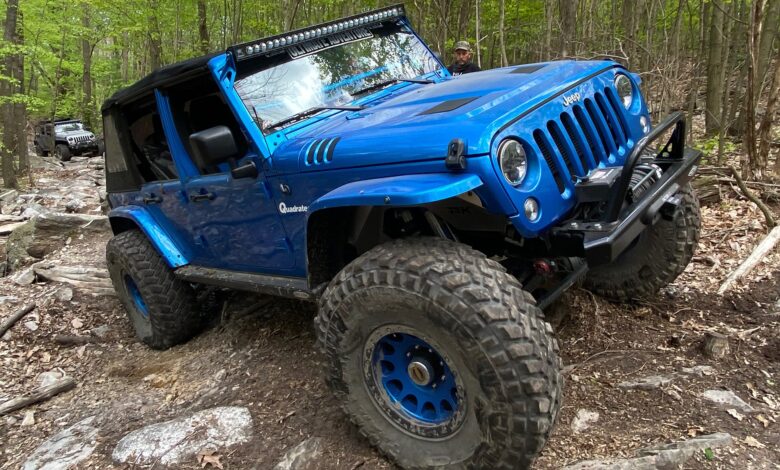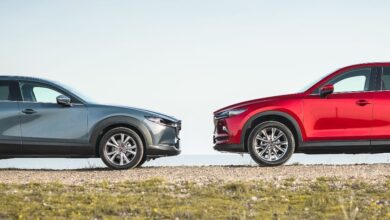How to Choose the Right Tires for Your Jeep

Choosing the right tires for your Jeep is crucial for optimizing its performance, safety, and overall driving experience. Whether you’re an off-road enthusiast or use your Jeep as a daily driver, the right tires can make a significant difference. Here’s a guide to help you select the perfect tires for your Jeep:
1. Understand Your Needs
Before you start shopping, consider how you primarily use your Jeep. Are you tackling rugged off-road trails, cruising on highways, or navigating city streets? Understanding your driving habits and the conditions you frequently encounter will help you narrow down the tire options.
- Off-Roading: If you spend most of your time off-road, look for tires designed for mud, rocks, and uneven terrain.
- Daily Driving: For highway and city driving, all-terrain or highway tires offer a smoother ride and better fuel efficiency.
- Mixed Use: If you split your time between off-road adventures and daily driving, consider all-terrain tires that offer a balance of on-road comfort and off-road capability.
2. Tire Types
There are several types of tires to choose from, each suited for different driving conditions and preferences:
- All-Terrain (A/T) Tires: These tires provide a good balance of on-road comfort and off-road capability. They have a versatile tread pattern that handles various surfaces, making them ideal for mixed-use.
- Mud-Terrain (M/T) Tires: Designed for off-road enthusiasts, mud-terrain tires feature aggressive tread patterns that provide excellent traction in mud, rocks, and sand. However, they can be noisier and less comfortable on highways.
- Highway (H/T) Tires: These tires are optimized for on-road performance, offering a smooth and quiet ride with good fuel efficiency. They are not suitable for serious off-road use.
- Winter Tires: If you live in an area with harsh winters, consider winter tires with specialized tread compounds and patterns for improved traction on snow and ice.
3. Size Matters
Choosing the right tire size is crucial for performance and safety. Refer to your Jeep’s owner’s manual or the tire information placard located on the driver’s side door jamb for the recommended tire size. Consider the following factors:
- Diameter and Width: Larger diameter tires can improve ground clearance and off-road capability but may require modifications to your Jeep’s suspension and fenders. Wider tires offer better stability but can affect fuel efficiency.
- Aspect Ratio: This is the height of the tire’s sidewall as a percentage of the tire’s width. A lower aspect ratio typically provides better handling, while a higher aspect ratio offers a smoother ride.
4. Load and Speed Ratings
Ensure the tires you choose can handle your Jeep’s weight and the speeds you typically drive. The load rating indicates the maximum weight a tire can support, while the speed rating indicates the maximum speed a tire can safely sustain. Choose tires that meet or exceed your Jeep’s specifications.
5. Tread Pattern and Design
The tread pattern affects traction, handling, and noise levels. Consider the following when choosing a tread pattern:
- Aggressive Treads: Ideal for off-road use, providing excellent traction in mud, sand, and rocks. However, they can be noisy and wear out faster on paved roads.
- Symmetrical Treads: Provide a smooth and quiet ride, making them suitable for highway driving.
- Asymmetrical Treads: Offer a balance of performance and handling, with different tread patterns on the inner and outer parts of the tire for improved traction and cornering.
6. Brand and Quality
Invest in reputable tire brands known for quality and durability. Research reviews and ratings to ensure you’re choosing tires that will perform well and last long. While premium tires may come at a higher price, they often offer better performance, safety, and longevity.
7. Budget Considerations
Tires are a significant investment, so it’s essential to balance quality with affordability. Set a budget and look for tires that offer the best value within that range. Remember, cheap tires may save money upfront but could cost more in the long run due to shorter lifespan and potential safety issues.
Conclusion
Choosing the right tires for your Jeep involves considering your driving needs, understanding tire types, selecting the appropriate size, and ensuring the tires meet load and speed requirements. By taking these factors into account and investing in quality tires, you can enhance your Jeep’s performance, safety, and longevity. Whether you’re conquering off-road trails or cruising on highways, the right tires will keep you rolling smoothly and confidently.




